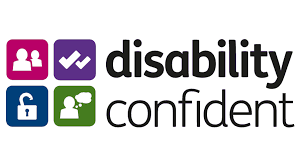Staying Positive When Job Searching: Our Top 10 Tips

Embarking on a job search can be a rollercoaster of emotions. From the highs of landing interviews to the lows of rejection, it's crucial to prioritise mental health throughout the process.
This World Mental Health Day, we share some of our top tips to navigate the job search journey while maintaining a positive and resilient mindset.
1. Set Realistic Goals
- Break down your job search into achievable steps.
- Celebrate small victories, like refining your resume or reaching out to a connection.
2. Establish a Routine
- Maintain a structured daily routine to provide stability.
- Include breaks for self-care activities, exercise, and relaxation.
3. Mindful Job Searching
- Be selective in your job applications, saving your time to apply for the roles you want. Quality over quantity!
- Tailor each application and research the role, company and Hiring Manager before applying.
4. Stay Connected
- Engage with your professional network for support and advice.
- Attend networking events or virtual meetups to stay connected with the industry.
5. Learn from Rejections
- View rejection as redirection. It's an opportunity to learn and grow.
- Request feedback to understand areas for improvement.
6. Practice Self-Compassion
- Be kind to yourself during setbacks. There will be ups and downs throughout your career and looking for the lessons in each down can help boost your trajectory back up.
- Acknowledge that the job market can be challenging, and you're not alone in facing hurdles.
7. Balance Screen Time
- Limit time spent on job boards and emails.
- Allocate time for hobbies, family, and activities that bring joy.
8. Seek Professional Help
- If anxiety or stress becomes overwhelming, consider seeking support from a mental health professional.
- Many organisations offer employee assistance programs with counselling services, and there's a ton of helpful (free) employment advice on line from organisations like ACAS.
9. Skill Development
- Use downtime to enhance your skills.
- Invest time in online courses or certifications to stay competitive in your field.
10. Celebrate Progress
- Reflect on your growth throughout the job search.
- Celebrate milestones, whether it's securing an interview or mastering a new skill.
BONUS! 11. Embrace Flexibility
- Be open to exploring different opportunities and industries.
- A flexible mindset can open doors to unexpected and rewarding paths.
BONUS! 12. Visualise Success
- Spend some time planning out your desired future and what you need to achieve it - new qualifications, relocation, networking opportunities?
- Consider having something visual to motivate you every day - whether that's a post-it with a quote, a full checklist or a big vision board. Visualisation can boost confidence and help keep you on track.





